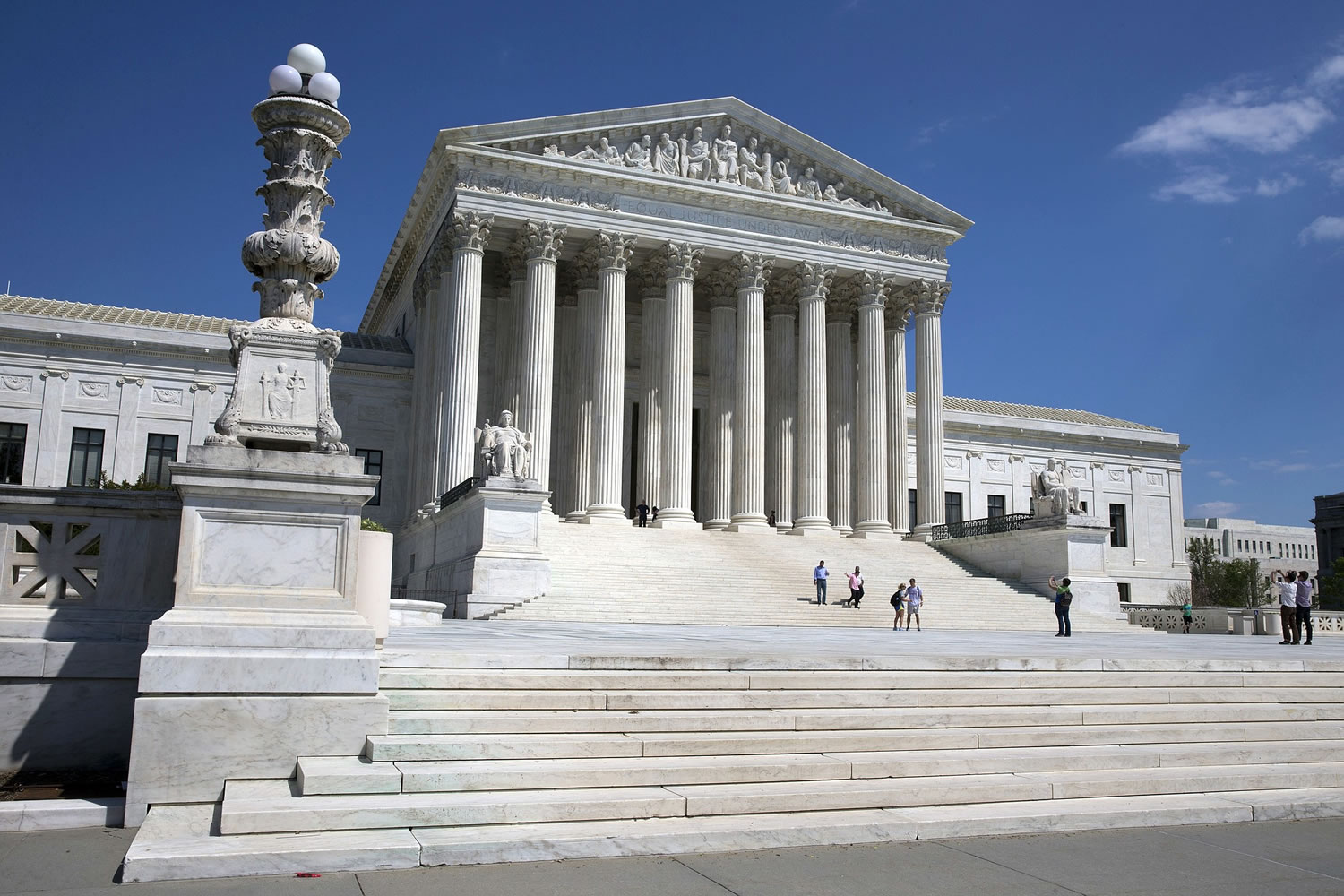WASHINGTON — Did retailer Abercrombie & Fitch discriminate against a Muslim woman who was denied a job because her headscarf clashed with the company’s dress code?
That’s the question in one of the 11 cases the Supreme Court said Thursday it will take on in its new term.
The justices took no action on the highly anticipated issue of same-sex marriage, though a decision on the gay marriage cases could come later this month.
Among the new cases, the court will consider the scope of housing discrimination laws, the First Amendment rights of judicial candidates to raise campaign money and a challenge from Arizona Republicans over who can draw the state’s congressional districts.
In the Abercrombie dispute, the Equal Employment Opportunity Commission sued the retailer after it refused to hire Samantha Elauf at a Tulsa, Okla., store in 2008 because her Muslim hijab conflicted with the company’s “look policy.” The policy was described at the time as a “classic East Coast collegiate style.”
A federal judge initially sided with the EEOC, but the 10th U.S. Circuit Court of Appeals reversed, saying Elauf never directly informed her interviewer she needed a religious accommodation, even though she was wearing the headscarf during her interview.
Government lawyers say the appeals court ruling undercuts legal protections for religious practices because it unfairly places the entire the burden to raise the issue with job applicants who often aren’t aware of a potential conflict.
The company argues that job applicants “are not permitted to remain silent and to assume that the employer recognizes the religious motivations behind their fashion decisions.”
Abercrombie has settled two other EEOC discrimination lawsuits over the same issue and it changed its “look policy” four years ago to allow its workers to wear hijabs.
The housing discrimination case is the third time in recent years that the Supreme Court has considered a challenge to the legal theory known as disparate impact. The strategy uses statistics to show that certain policies can harm racial minorities even when there is no intent to discriminate.
The case involves a Texas fair housing group that claims the state’s system for distributing low-income housing tax credits discriminates against racial minorities by perpetuating segregated neighborhoods. A federal appeals court agreed that the group could use statistics to show the state was approving more low-income housing in black neighborhoods than in white areas.
The Texas Department of Housing and Community Affairs argues that allowing disparate impact claims would open nearly two dozen housing programs in the state to potential litigation. The agency said it essentially forces officials to seek out race-neutral results without actually taking race into account.



